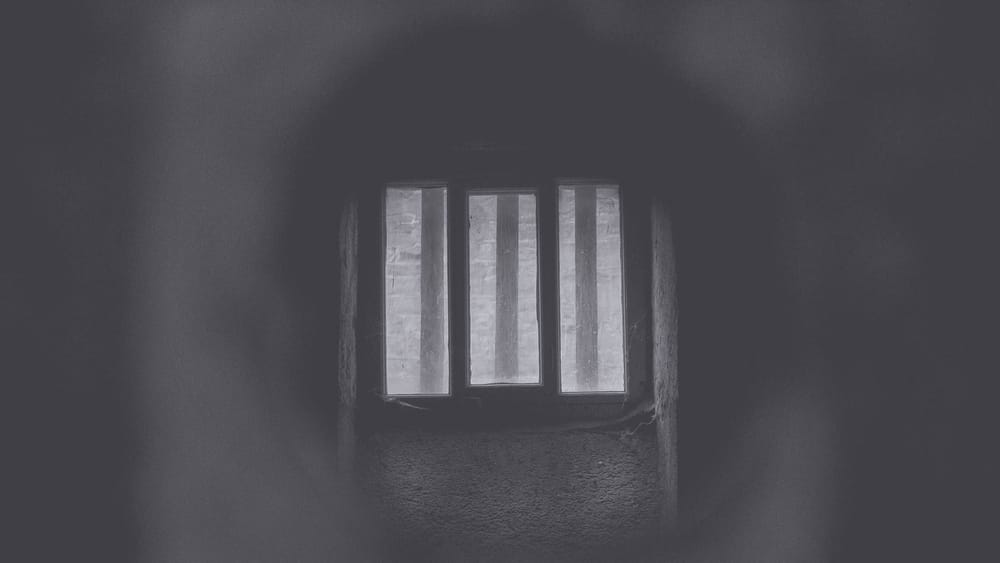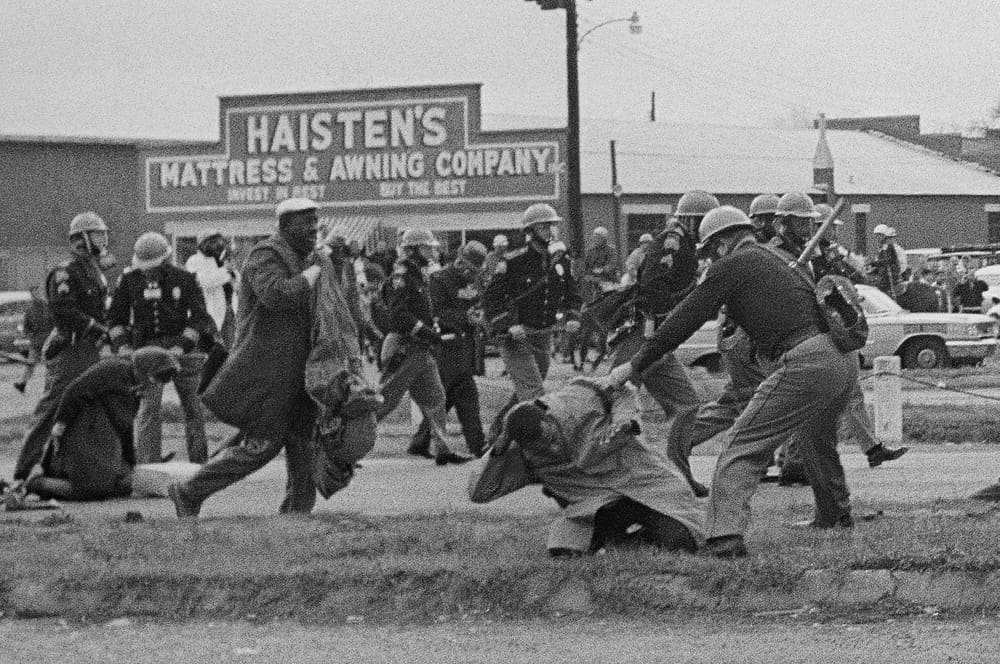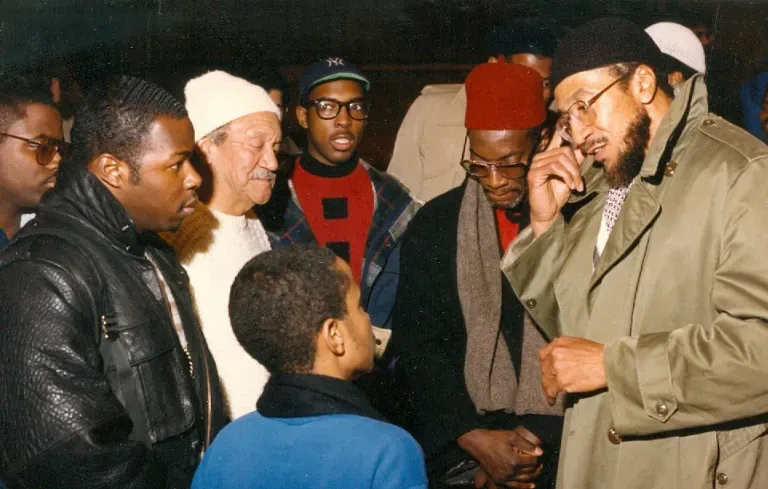Sharing stories about their lives and experiences in political organizing, narrators contribute to a collective memory, highlighting the similarities and differences in the landscape today and how they have remained committed to movement work over decades.
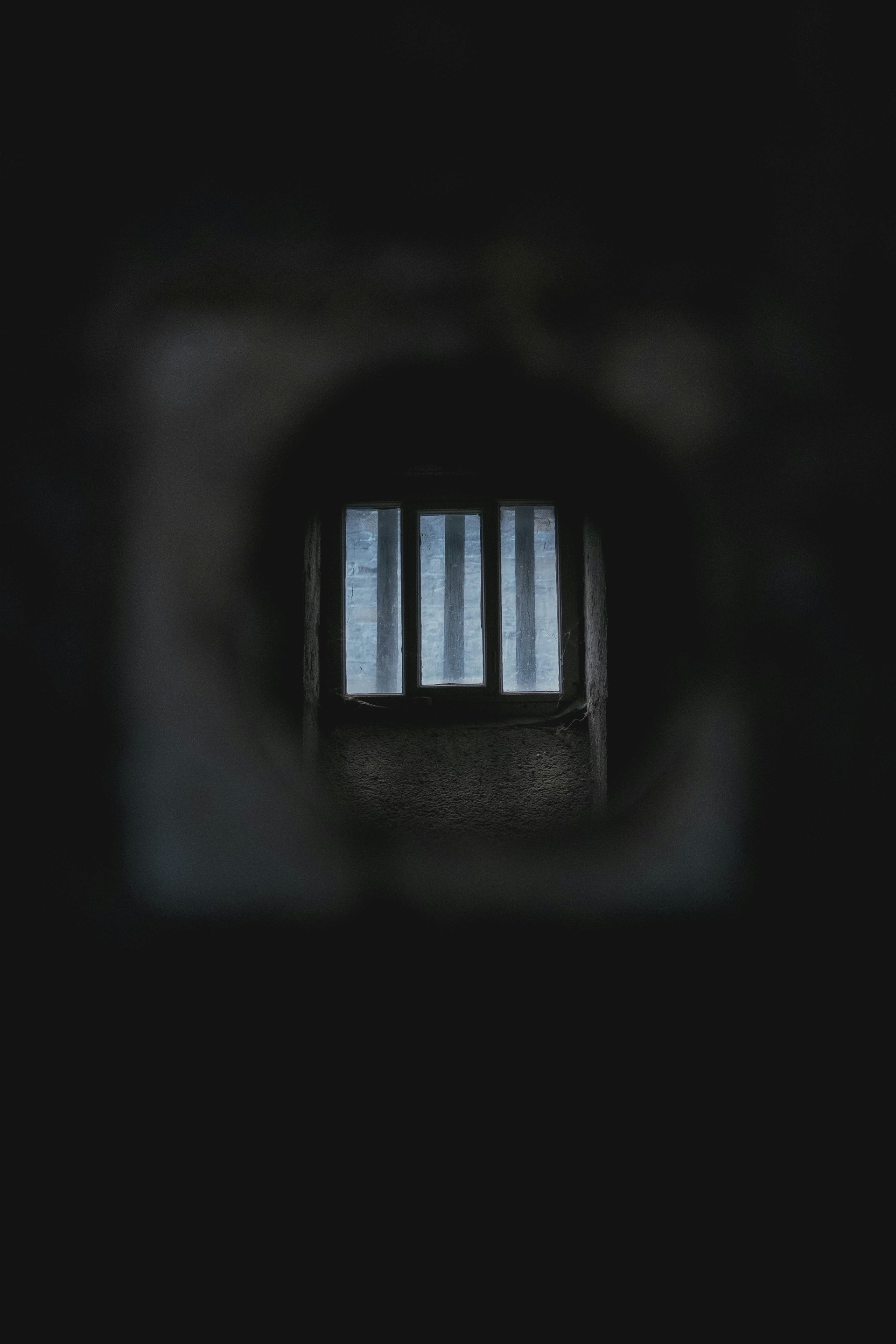
This is a preview of Ashanti Omowali Alston's 3-hour oral history conducted by oral historian Dartricia Rollins. It was recorded on July 13, 2025 at a community center in Providence, Rhode Island as part of an oral history collection with Veteran members of the Black Panther Party and Black Liberation Army.
Born in Plainfield, New Jersey, Ashanti Alston recounts his life as a revolutionary. From joining the Black Panther Party (BPP) as a teenager to going underground with the Black Liberation Army, he shares his stories of community organizing and direct action for Black liberation. Detailing his role in BPP survival programs, his 14 years of incarceration as a political prisoner and prisoner-of-war, and the tragic death of his comrade Rima, he emphasizes the importance of total struggle and building community institutions for self-sufficiency to sustain the struggle for Black liberation.
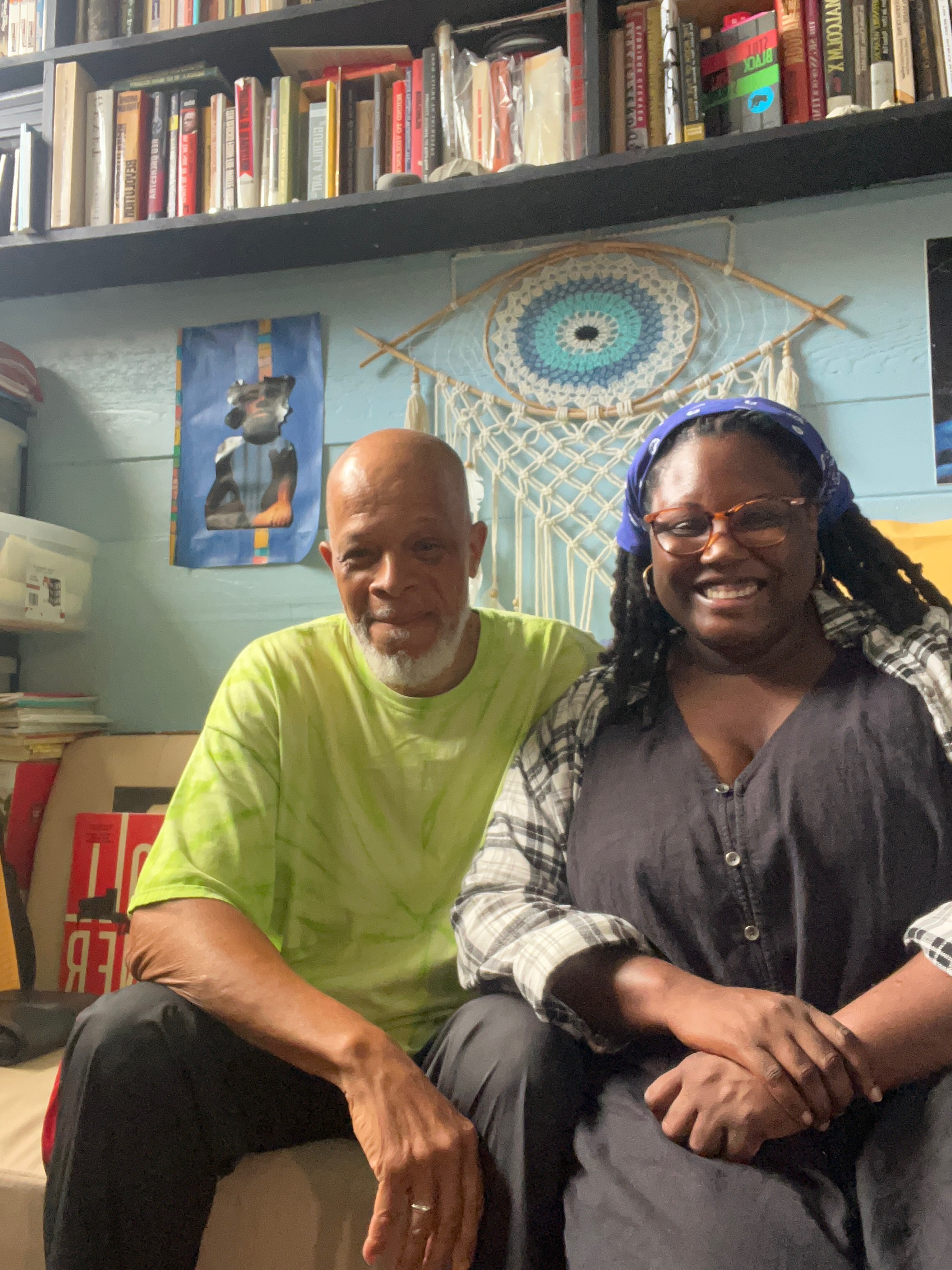
Ashanti Alston: But so a lot of us saw ourselves as a continuation of these armed formations, in defense of our liberation. And so when we joined them ranks, man that was just...not only carrying on. But I always say, man, when Safiya [Bukhari] approached me, I was proud. Oh, my God, she thought enough, or they thought enough of me that I might be ready to do this. I'm joining the ranks of the Black Liberation Army. Wow. You know. So it's that thing there. It's like, when you start to see the history and how you're connected to it, it becomes clear, like you got to develop this capacity and get yourself ready. Yeah.
Dartricia Rollins: Yeah.
Ashanti Alston: *unclear* I'll get it.
Dartricia Rollins: So then you joined the BLA...
Ashanti Alston: And then I joined the BLA.
So, Safiya put me in touch with folks. And the folks that she put me in touch with, they were obviously except for one first time that they were ever approached like that. The one who wasn't had already been a part of the underground, a woman, right. So it's like, again, like, I feel like we did the best we could on the on the sexism, and it's one of the things that I felt like impact me a lot, was seeing women in these positions, so all of that macho stuff, you got to really figure out how to keep it in check the best we could, you know, but so we when we understood what was being brought together for, and it was specifically to liberate them, folks from The Tombs, comrades from The Tombs. Like, we accepted it. And after that, this is what we were working towards.
We did the research. We made sure that whatever technical stuff we needed we would get and that's how, that's how we approach it. I'm trying to think of some other. Well, it's interesting. What I can say is that every cell that came together was independent. We worked on a need to know basis. And if you it was never a thing like everybody, would know everything.
As far as the Black Liberation Army was concerned, several things helped for us to have never been infiltrated, and one is that we tended to know each other, or the folks who didn't know each other, like they say now, was vetted enough to trust in that process and the need to know basis was that there may be one person in there, that if there's other cells, particularly in the area or whatever, there's sure to be one person who knows how to get in touch with so and so, with so and so. But a lot of times, that was another role that Safiya played.
Oh, so when it came time for us to, like, start finalizing some things, it was the communication we had with the political prisoners, prisoners of war inside you talking about Noah, Albert Noah Washington, Herman Bell, Jalil Muntaqim, the Torres brothers, because they were known as the five at first. So these are all guerrillas, you know, and we relied on their information.
The first time they said it was a tunnel from one of the manhole covers that led right up under the tomb. If you ever see a picture of The Tombs, you would just have, you could even look it up. But you see, it's massive buildings all in the same areas, the federal buildings, the city buildings, like the city jail, the federal jail, all these other court buildings all in the same area, but there was supposed to be a tunnel that led up under them.
So one, wee morning, nighttime, we go in this area, and we actually lift up one of these manhole covers. Somebody goes down and there's nothing there, but some John Q citizen somewhere is like, I'm sure. Oh, what these niggas doing? Yo, come get 'em, you know. So next thing we know, here's the police, and they arrest us, take us to Rikers Island, but the only thing they can charge us with is tampering with the manhole cover, right. So when the newspaper came out the next day, I believe the newspapers called us the city rats, but they were saying that they knew our background. They said that we were trying to find out how to get into the building right across from where the manhole cover was. It was a city government building where one of the offices held all the plans of every prison in New York. So they figured we were going there, and we sat there like shit. I wish we had known that. That would have been the objective that you know. So thank you for giving up that information.
But so we end up being just a few days in Rikers, and they let us go on our own recognizance, but they let us go. We were like, Okay, we gotta go back to the drawing board, because clearly, this plan didn't work.
So then, the next plan was, like, we talked with them again inside, they're on trial every day, we're able to not only go to the courtroom and visit them, but we are also able to bring them food. So it got to be a regular routine like when we go to visit them, we pass the food on to the guards, and then we go visit them. Got to be a routine. We're watching the patterns, chit chat, all that stuff. It's just that, well, we figured out that we're gonna get them out of the visiting room.
So you can, you can imagine that there's a metal wall here. Glass window. You got a phone. I got a phone. We're going to go through the wall and get them so we had someone that knew how to work their acetylene torch. This is all stuff that Safiya would help make sure happens. And then the rest of us, you know, we had this worked out. How we were going to do it. We was gon cut through the metal wall. They would take care of the guards on their side. We would take care of the guards on the visiting side. It just so happened that the person that was supposed to do the cutting couldn't do it, because, not only coming from another state, he already had some other things he was involved with. He couldn't pull away like that and do it.
So I chose to be the one to teach myself how to use this acetylene torch. I got to find some area and like it's secluded, and start testing it out. And I wish I knew how to work it better, but got to the point where I said, Okay, I think I got it. So the day that we chose that we are going to do this, they don't, you know, trial day is over. We got our bag passed. We're gonna pass the food once we are in the... and then go visit them.
Except this time, when we open the bag before we hand it over, we pull out the weapons, we take the guards, and take them to the bathroom. And I'm always very proud to say, we handcuffed them to the toilets. And I say, you know, because you do a shitty job, you know, our mentality like, Oh, this is all we're doing this, you know, so, and then we proceed up to the floor where we're gonna visit them. And so one guard was there, and then when we go up there, there's a guard that's on that floor. So we have to do the same with that guard. And then there's other visitors.
You know, there's going to be about three to four BLA folks, but I'm starting to cut. Everything is set, except that shit. Okay, so it may be like I'm cutting... *gestures* *laughter*
Ashanti Alston: Alright, I'm cutting and I'm cutting through, and it's working. And I can kind of see, though, that sometimes the metal gets so hot that there's little drips. But I'm cutting and I'm cutting, and then I get to, like, right here, and there's this much to go, and the thing stops cutting.
Dartricia Rollins: No!
Ashanti Alston: Because the oxygen, when the fire is there, it's the oxygen that makes it cut. But the thing is, I was taking much longer than needed. I didn't know, right. So after that, it would go no more, but because the metal was hot in other places, there'd be little drips.
And one of our comrades wondered,
"Can we kick it?"
"No."
"Can we shoot it?"
"No."
Because that would, not only would that alert everything, but you probably just get a ricochet, you know.
So the only thing we could do was look at our comrades. *fist* Power to the People. We gotta go.
Dartricia Rollins: So you went.
Ashanti Alston: Yes, and as easy as it was to do. We had it planned. It was as easy to get away. If it had been successful, we would have not only had them four comrades, but we are sure that some of them, other prisoners was going to come with us. So that was how that went.
And it was a little heartbreaking for me, not only, we didn't get our comrades out, but two of the sisters who were on this mission as well. It was their partners and one in particular, if it had been successful, the children, her children, were already at a certain place, and they would have been reunited.
But you got to make them decisions, you know and and you never know how these things are going to go. But our comrades on the outside, they were doing what they were supposed to do. They had secured that. So as soon as we came out into the van, we gone!
But, I tell that story for two reasons, the main reason is because while I was doing later on getting captured in prison, the state let the time period. There's a certain time period, if you wanna try somebody, statute of limitations, they let it run out. My lawyer had contacted me and said they can't try you for that anymore, because they let it run out. So that's one reason I tell the story. The other reason is because I want people to know these are some of the things we do in our war of liberation.
We don't sit around and wait for all that legality and all that other stuff like,
I tell you what, me and Jihad, we are not sitting around waiting. We are soldiers in this thing.
And at that time, Jihad is just Panthers, but we understand, you know, no, we're in this war. It's not rhetoric, you know. It's war, you know. So I want people to know, and I would tell them like you gotta imagine. Harriet Tubman, how many times was she back and forth risking her life to free people? No, she knew that every time she was risking her life, going, coming, going, coming, carrying a gun, you know. So this is real.
Ashanti Alston: This is not I'm not entertaining you by telling you this story. I want you to get something from this and some of the things that are also required, so that you do not think that we do this all through all the protests and voting and some magical way the Empire just gon fall. No, no. So...
Dartricia Rollins: ...you gotta make it fall.
Ashanti Alston: You gotta make it fall. And I think that many of us, even our folks, are still caught up in that American exceptionalism. No man and you can always see how this society is always this empire is the most murderous, vicious, evil thing that has always existed. Do not think that they won't do you the same way they did everybody else that opposed them and will do until they are defeated.
Ashanti Omowali Alston is a Revolutionary, speaker, writer, organizer, motivator. Ashanti is one of the few former members of the Black Panther Party who identifies as an anarchist in the tradition of New Afrikan ancestor Kwesi Balagoon (BPP & BLA) within the Black Liberation Movement. As a result of his membership in both the BPP and Black Liberation Army (BLA), he served a total of 14 years as a political prisoner and prisoner-of-war. He is currently on the Steering Committee of the National Jericho Movement to free U.S. political prisoners. On top of all that, he is an Elder-co-parenting two youngins’ and a grandfather of a small “maroon nation.” Ashanti resides in Providence, Rhode Island.
